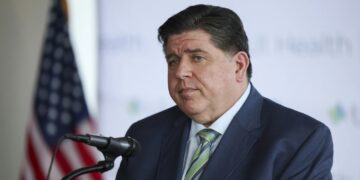During the July 2018 NATO summit, elements of the USA newsmedia focused on President Trump’s accurate attacks on Western Europe’s contradictory actions and positions in the arenas of defense and commerce. What the USA newsmedia covered much less was how welcome those points were to NATO members from Eastern Europe, whose memories of Russian aggression are much more recent, perhaps, than those of Western Europe, making them as wary of these issues as Mr. Trump is.
Delegates from Poland, Lithuania, and Romania, for example, appeared just as happy about Mr. Trump’s comments as delegates from England, France and especially Germany looked upset about them.
It’s an alliance, of course, so it would be best if all parties were in agreement, but when some parties are working at cross-purposes to the alliance, does it make more sense to talk about it and seek solutions, or to diplomatically avoid the elephant in the room and pray it goes away on its own?
In truth, the question comes down to one’s fundamental approach to such concepts as sanctions, export controls, and the very idea of an alliance itself. What are they, really, and how seriously should members address such measures?
NATO was originally created to help protect the West from a feared Soviet assault. From its very beginning, foiling any further Russian expansion was the primary raison d’etre of the NATO alliance. If China or Japan or Iran attacked Western Europe, it would be there for those too, of course, but the real key purpose was fear of the Soviet Union.
In the early 1990s, the Soviet Union ceased to exist. It broke up, and most of its captive nations were freed. Almost immediately, most of the European ones started applying to join NATO, both because they wanted to be part of the free world in every way they could, and because they knew that the Russian bear would always pose a risk, whether it remained “communist” or not. It was a threat under the Czars; it was a threat under communism…. there was no reason to believe it wouldn’t be a potential threat under a president or prime minister too.
So NATO welcomed them in, and all these former members of the Eastern Bloc happily joined the West. But a strange thing happened: many in Western Europe, perhaps not having the same experience, certainly not having the same proximity, quickly began to forget the dangers of Russia.
Western Europe cheered the end of the Cold War, and started getting careless about their defenses. They spent less on defense, lost interest in the concept of strong borders, expanded the EU’s personal mobility concept to allow practically anybody who had gained entrance to one member’s territory to freely move in and out of any of them.
And what did this appearance of openness and carelessness do for them? It invited millions of “refugees” from the middle east and elsewhere. It invited Russia to try pushing the envelope. What would Western Europe actually do, in this new era, if Russia invaded Georgia, or if Iran and Pakistan started sending hundreds of thousands of young men to colonize the continent? Would this new NATO, soothed into lethargy by the “peace dividend” of the Cold War’s end, do anything at all?
Europeans built a Maginot Line after WWI in hopes of averting a WWII… they have made the most of the natural defenses of oceans, rivers, and mountain ranges throughout human history… they pleaded with America and other allies to help them when they were invaded before… but this time, they sat back and let it happen.
Until Crimea.
In 2014, when Vladimir Putin heard a call from Crimea inviting him in, saying “hey, Russia, we miss you, please take us back!” – even if nobody else heard it, Mr. Putin is sure he did – he answered that call by annexing Crimea, taking it away from Ukraine, to the shock of Western Europe.
So Western Europe felt a need to respond. They called on the United States to join them, and presented a united front of new sanctions against Russia. At Europe’s request, the United States under the Obama administration issued complex sanctions… and we have now had a four year standstill as a result. Russia possesses the Crimea, Ukraine still claims it; our business community must manage these regulations as a result.
This leads us to consider what sanctions are, and how they work.
Most countries have some form of Export Control regime, in which the government identifies countries and parties that are banned from commerce (typically direct enemies in either hot or cold wars, and groups and organizations that support them), and the products and technology that would be dangerous in enemy hands (such as munitions, nuclear and satellite technology, and dual-use items and technology that have a legitimate civil use but also would pose dangers in the wrong hands).
Countries typically require government permission in advance before a company can trade with countries or parties under such sanctions, or before a company can transfer export-controlled goods, materials, or technology with some countries, or even with any foreign countries (or their domestic representatives) at all. The variety of Export Controls is considerable, and requires both extensive training and complex processes to ensure that a company understands and obeys them.
In all these areas, the private sector – the business world – is essentially deputized to support the government in these policy goals. Manufacturers, wholesalers, inventors, logistics firms, banks, individuals – all citizens are bound by the Export Control laws to support the nation’s foreign policy and national defense interest in these regards,
Almost every company should have a process, managed by their legal and trade compliance teams, to ensure compliance with these regulations – identifying every product and technology they trade in, and every customer and vendor with whom they work, and monitoring to ensure that every transaction is legal. Very few types of businesses are completely immune from risk in this arena.
The USA operates an Office of Export Enforcement within the Bureau of Industry and Security, to assist in managing these matters; the sanctions themselves are distributed between State, Commerce, Treasury, Homeland Security, and more, in various ways.
Many of these you would expect: money-launderers for terrorist groups show up on an OFAC sanction list; bans on sharing munitions are covered under State management of ITAR; restrictions on ordinary chemical processing machinery that just has a potential dual use of chemical weapon manufacture are managed by Commerce in the Export Administration Regulations.
In addition, the USA has a clearly defined concept of “deemed exports,” wherein such non-physical issues such as information, technology, and communication are covered just as much as physical goods are. So, if you are banned from shipping a product to someone without an export license, then you are equally banned from discussing its manufacture on the phone with him, or from sending him its blueprint, or giving him a plant tour where he could see it being made.
But different countries manage these sanctions very differently. The USA has traditionally taken sanctions very seriously, on the theory that if it makes sense to restrict trade, you’d better do it right. So the USA bans straw buyers – the idea of inserting one or two middlemen into a transaction in order to throw the government off the scent.
If the USA bans shipments to Iran, for example (as we do), then we also forbid sending the goods to someone in France who would resell them to Italy, who would resell them to Jordan, who would resell them to Iran. The USA position is that sanctions follow the product, even after your transaction is over. All businesses are obliged to understand and monitor the end users, and end uses, of their products, to the extent that it is knowable. Unauthorized sharing results in the original seller being investigated – did he, or did he not, take all the care he should have, to ensure that this didn’t happen?
By contrast, some other countries traditionally lose interest in export controls once the first transaction is accomplished, making straw purchases by middlemen an easy way around the rules.
And some other countries go even further in their non-enforcement, happily authorizing huge government projects with sanctioned parties because different parts of the governments have different policy positions on the matters at hand.
The European response to Russia’s invasion of Crimea is a perfect example. The sanctions we imposed did not focus on criminal parties, terrorism supporters, or military-business partnerships, like sanctions usually do, but rather, they focused on the oil and gas sectors, and other areas of normally peaceful, non-military commerce that are operated by businesses presumably with Mr. Putin’s ear. Europe’s theory was that if we brought Russia’s oil and gas expansion to a standstill, then Russia would pull out of Crimea.
Instead, Russia didn’t buckle at all, and USA and European manufacturers in these sectors have spent four years managing a complex set of sanctions on products and businesses that are not usually sanctioned. It’s the private sector’s job to do it, so we do, but it hasn’t shown any fruition in the area of policy yet. Mr. Putin doesn’t seem any nearer to pulling his troops out of Crimea today than he did the day he went in.
And this brings us to the 2018 NATO summit. President Trump called on Germany in particular because German government officials fully support new gas pipelines with Russia, not only continuing an ever-increasing level of dependency on NATO’s primary foe, but also, directly undermining the pro-Crimea sanctions that were the EU’s idea in the first place.
Mr. Trump’s comments that week called out Europe, as a group, for not taking its own sanctions seriously, in fact, for undermining its own sanctions, again and again, over the years. They say Russia is their biggest danger, but they tie themselves to Russia through power dependency. They say they support our sanctions on Iran for its spread of global terror, but then they happily buy billions of dollars in oil from Iran, propping up the Tehran regime.
None of this is to say that anything about Export Controls is an easy call. Foreign policy has always been challenging, and it’s not unusual for a nation to change tactics over the years.
But the EU talked the USA into supporting these unprecedented sanctions against Russia in response to Crimea, and while we take them seriously, some EU members are officially undermining them in the interest of profits.
No wonder the USA, which has lost billions of dollars in commerce over the past four years by supporting and enforcing these sanctions, in our effort to be good and helpful allies, feels a bit frustrated to see our allies taking these sanctions less seriously than we do, when they were their idea in the first place.
And no wonder that the eastern European nations were vocally supportive of Mr. Trump finally talking about it out loud.
We have a long way to go, in our journey to make this a safer world. But if we are to work together with our allies, we do need to be willing to face reality, and to have leaders willing to do so out loud.
Copyright 2018 John F Di Leo
John F Di Leo is a Chicagoland-based writer, trade compliance trainer, and actor. His columns are found regularly in Illinois Revew.







